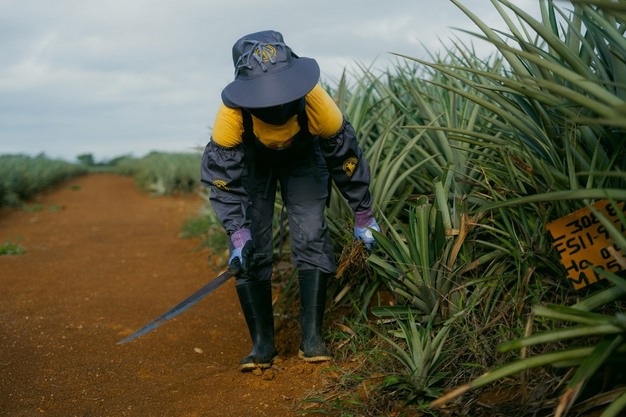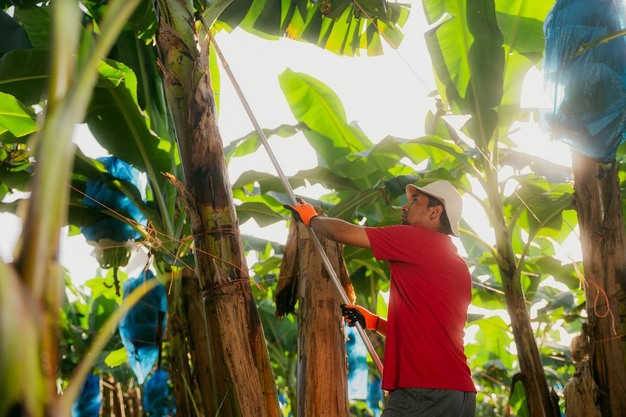In 2025, the Costa Rican agricultural sector, particularly banana and pineapple producers, has been put to the test by extreme weather conditions. According to Pierre Terranova, Head of Corporate Affairs at Fyffes, excessive rainfall and rising temperatures have created major technical and field challenges in the main producing areas of the Caribbean and the north of the country.
“In regions such as Matina, Guácimo, Sarapiquí, and Río Cuarto, excessive rains have made it difficult for machinery to enter the fields and have delayed the sowing, so production cycles have been affected,” says Terranova. In the specific case of bananas, productivity is down by up to 20%, according to Corbana data. In the case of pineapples, the planting plans for the first half of the year have been the most disrupted, and that could take a toll on the fruit supply in early 2026.
 © Fyffes International SA
© Fyffes International SA
In addition to lower yields, quality has also been compromised. “The combination of high humidity and higher temperatures facilitates the proliferation of fungi such as sigatoka, or pineapple rot,” says Terranova. These factors are forcing growers into carrying out early harvests and the implementation of additional measures for crop health preservation.
Fyffes has immediately taken action, “raising the ridges in pineapple fields to prevent waterlogging and redesigning drainage to improve circulation. In bananas, sanitary pruning has been intensified in order to keep the spread of diseases in check. These are simple measures, but they really make a difference in the field,” he says.
In the medium and long term, the company is working on implementing a regenerative agriculture strategy, focused on strengthening soil health and increasing crop resilience. Water recirculation plans have also been implemented, with the share of reuse already at 40%, and growers are using fertilizers with lower nitrogen content in the framework of a commitment to reduce emissions.
 © Fyffes International SA
© Fyffes International SA
Fyffes is seeking to consolidate its transition to more efficient, low-carbon production, striving towards zero carbon in the coming years. “We continue to measure climate behavior and the effects of fertilizers to continuously adjust our practices,” says Terranova.
The executive also highlighted the importance of collaboration with rural communities through programs that strengthen local resilience and water governance, while also boosting women’s empowerment in environmental management.
Looking ahead, Terranova believes that the main challenge for the sector is the adaptation of production systems. “The way we are currently producing is not sustainable. We have to change and find more responsible alternatives to be able to keep supplying the world,” he says.
 For more information:
For more information:
Pierre Terranova
Fyffes
Costa Rica
Tel.: +506 64678749
[email protected]
www.fyffes.com
Source: The Plantations International Agroforestry Group of Companies
